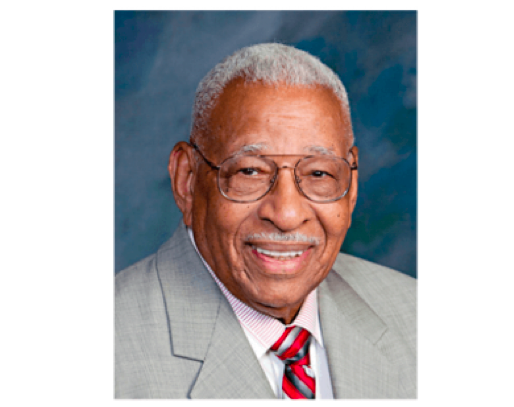Remembering African American trailblazer William C. Thompson

Racism and segregation were at the forefront of the political debate in America during the 1950s and 1960s.
In a historic decision in 1954, the U.S. Supreme Court ruled in Brown vs. the Board of Education that separate public schools for black and white students were unconstitutional. The Supreme Court decision prompted some Americans to speak out against inequality, paving the way for others to raise their voices.
One of those who spoke out was William C. Thompson of Brooklyn. Ron Howell, associate professor in English at Brooklyn College, said Mr. Thompson was one of several African American lawyers who made up the United Action Democratic Association, an organization that advanced minority political power in New York City.
Bertram Baker, the maternal grandfather of Mr. Howell, led the United Action Democratic Association.
Mr. Thompson, a pioneering civil rights figure who maintained a home in Mattituck and served on the Southold Town Ethics Board, died of complications of colon cancer Dec. 24 at his home in Brooklyn Heights. He was 94. His funeral, held in Brooklyn, was a “celebration of life,” according to former Southold Town Board member Bill Edwards said. Mayor Bill de Blasio spoke at the service.
Mr. Howell said his grandfather opened doors for African Americans from Brooklyn — including his protege, Mr. Thompson — and allowed them to seek positions as elected officials and judges. In 1948, Mr. Baker became the first black elected official to hold political office in Brooklyn’s history, representing Bedford-Stuyvesant in the State Assembly.
That same year, Mr. Thompson received a degree in political science from Brooklyn College and later graduated from Brooklyn Law School, according to Mr. Edwards. He served in the army in 1943 with the 92nd Infantry Division in Italy during World War II, Mr. Edwards said. Former Southold Town Democratic Committee chairman Art Tillman said Mr. Thompson called himself a “buffalo soldier” after his army experience. The title was given to members of the African American cavalry regiments of the United States army who served from 1867 to 1896.
In 1964, Mr. Thompson became the first black state senator elected from Brooklyn, Mr. Edwards said.
Mr. Thompson married Elaine Allen and had two children: Gail Thompson and Bill Thompson, a political figure who served as the 42nd Comptroller of New York City and president of the New York City Board of Education.
Mr. Thompson was on the City Council from 1969 to 1973. He was named the administrative judge of the Supreme Court in 1974. During this time, he became a leader of the Democratic party of Brooklyn when he was elected chairman of the Kings County Democratic Committee. In 1978, he was named the assistant administrative judge of the Supreme Court in Brooklyn and Staten Island. Two years later he was named the first black associate justice appointed to the Appellate Division of the Second Judicial Department in Brooklyn.
“Thompson, upon becoming a judge, left his mark on the New York State judiciary and was ever after, even upon his death, referred to with deference and respect as the Judge,” Mr. Howell wrote in an email.
But Mr. Thompson wasn’t strictly a Brooklynite. Mr. Thompson spent some of his time on the North Fork — in his second home on South Drive in Mattituck.
“Out here, it was an escape for him,” Mr. Edwards said.
His home, on Mattituck Inlet, was the scene of memorable parties every August with roughly 100 attendees, Mr. Tillman said.
“You had all these people from Brooklyn, who clearly thought they were out in the prairie,” Mr. Edwards recalled. “It was almost like they wanted to kiss the ring … they wanted to show up because William was such a legendary man.”




